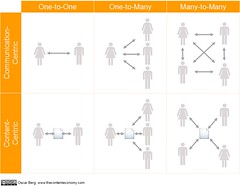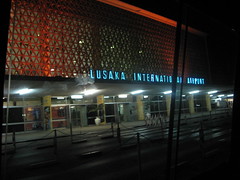|
The deputy chief of mission in Lusaka was very pleased at my arrival because he felt I could do more than the WAEs previously there could do. That was my introduction to the Rover advantage. However, it didn't turn out to be the advantage he cared about in the end.
The embassy in Lusaka was larger than the embassy in Tana in terms of the number of staff. The building wasn't large enough for all the staff so the GSO operations were at an offsite location, a 30-minute drive from the embassy when traffic was good. Traffic was almost never good. The DCM charged me with evaluating the GSO staff capabilities since there had been many complaints. He hadn't asked the WAEs for their assessment because he wasn't confident that they were current with all the regulations.
I had my orders. And I set off with a motorpool driver for the GSO annex.
The annex included a carpentry shop, a welding shop, an automotive shop, a warehouse with a supply room for office supplies, in addition to the motor pool and procurement office. Inside the GSO office area there were phones, a fax machine, and a photocopier in addition to the PCs in my office and the outer office of the GSO's secretary.
The phone lines were unreliable. Sometimes calls went through. Sometimes they didn't. But phone calls were the least used method of communication between the embassy and the annex. Instead, the embassy relied on e-mail. And that almost never worked.
There was a wifi link for the annex, but since wifi was not approved for use at that point, getting it working was not a high priority for the IT staff. They didn't like coming to the annex because it often meant they would lose a half-day.
|
When e-mail was working, any message that arrived from the Marines would take 20 minutes to open because they all used a stationery style with the Marine Corps seal as a watermark. Any attachment would take 20 minutes to open, so I got into the habit of calling the management officer's secretary to find out what was in attachments instead of trying to open them. Sometimes the phone call saved me time. Sometimes not.
The real problem was that no one in the embassy seemed aware - or cared - that their messages sent by e-mail weren't getting through. I missed meetings because the invitation didn't get through. No one knew now many messages never reached us, or reached us well after we needed to see them. The attitude seemed to be a message sent is a message delivered.
Sometimes the management officer's secretary faxed the messages to us. But the fax machine never worked during the three weeks I was there. Because of the problems with the telephone lines, they bought digital senders, combination photocopiers and scanners that could send a PDF copy of a document as an email attachment. The digital senders hadn't yet arrived, but I predicted they wouldn't solve the problem. They would just add to the technological non-solutions.
Once a day interoffice mail from the embassy was delivered. Sometimes someone had thought to print out a copy of what was sent as an attachment via e-mail, but that was rare. They were trying to save paper.
It was clear to me that there was a communication problem.
I turned next to the work. Since the majority of the complaints had to do with the GSO's procurement section, I started looking there first. What I found was a group of local staff trying to process purchase requests by following the regulations. But when they didn't act as fast as the requesters expected, the requesters went out and purchased what they wanted or made commitments that required a contract which they expected the GSO to sign without regard for the required process. I found stacks of improper procurements that needed to be ratified, a fancy word for reviewing the steps to identify who failed to follow the procurement process and then get someone in the Office of Acquisition to sign off to indicate either the procurement would have been proper had the steps been followed and that the government received value for its money or what the penalties would be for whoever took improper actions. That meant a lot more work for me. It also made clear that those who requested procurement actions, nearly all from agencies other than State, did not understand the requirements at all. Again, the bottom line seemed to be that lack of adequate communication was behind the problems.
I wasn't in Lusaka long enough to observe whether the staff in the many workshops were taking longer than necessary to complete their work. Or if there were possible improvements in filling supply orders. There were no complaints about those operations.
On my final day at the embassy, the DCM called me to his office to hear what I had learned. I explained how I concluded the lack of adequate communication between the staff of the embassy and the staff at the annex was the source of the problems. I recommended that the GSO staff be included in meetings with the rest of the management section. I recommended that the rest of the embassy not rely entirely on e-mail when communicating with the GSO staff. I recommended that non-urgent information be sent via interoffice mail and that urgent information be conveyed by telephone as redundant means to ensure the messages were received.
So ended my TDY in Zambia. |






No comments:
Post a Comment